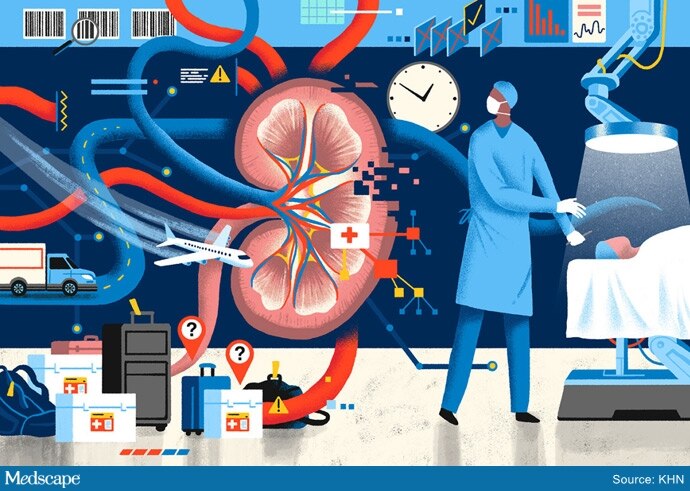
Today I was surprised to learn of a problem that really shouldn’t exist.
It’s no secret that there is a shortage of organ donors. The Medscape website estimates almost 113,000 people are waiting for transplants. So you would think the shipment of donated organs would receive the highest priority. And you would be wrong.
According to a joint investigation by Kaiser Health News and Reveal from the Center for Investigative Reporting, nearly 170 organs could not be transplanted and almost 370 endured “near misses,” with delays of two hours or more, between 2014 and 2019. In addition, twenty-two organs had to be rerouted to be transplanted somewhere other than their intended destination. The cause — transportation “failures.” For example, in 2018 a human heart was left behind by mistake on a Southwest Airlines plane; fortunately, that organ was destined to be used for its valves and tissues, not to save a life.
These data were gleaned from more than 8,800 organ and tissue shipments voluntarily collected by the United Network for Organ Sharing (UNOS), the nonprofit government contractor charged with overseeing the nation’s transplant system.
Some organs, like hearts, can only survive four to six hours; surgeons often go to collect them personally. But other organs, like kidneys and pancreases, have longer shelf lives and frequently travel commercial as cargo. Consequently, they can face the same problems as the traveling public — missing connecting flights or lost like a piece of luggage. Unbelievably, they are usually tracked with an obsolete system of phone calls and paper manifests. Plus there is no national system to transfer organs from one region to another. Instead, there is a patchwork of 58 nonprofit organizations called organ procurement organizations (OPOs) to collect the organs from hospitals and package them. But commercial couriers and airlines are not held accountable for problems and delays. Consequently, the horror stories continue to pile up.
With the technological tools we have available today, you would think there would be national standards with state-of-the-art tracking. As Dr. David Axelrod, a transplant surgeon at the University of Iowa, puts it, “If Amazon can figure out when your paper towels and your dog food is going to arrive within 20 to 30 minutes, it certainly should be reasonable that we ought to track lifesaving organs, which are in chronic shortage.”
Last year, an average of nine people a day died while waiting for a kidney. I just don’t understand why we’re not doing better.
For more information, see “How Lifesaving Organs for Transplant Go Missing in Transit” by JoNel Aleccia on Medscape, a news website for healthcare professionals (https://www.medscape.com/viewarticle/925049#vp_1, registration is required).
Also, listen to “Lost in Transplantation,” a podcast broadcast on August 22, and February 8, 2020, by Reveal from the Center for Investigative Reporting (https://www.revealnews.org/episodes/lost-in-transplantation-2/). The second portion of this podcast is an uplifting account of one family’s experience when faced with a tragic donation decision.
